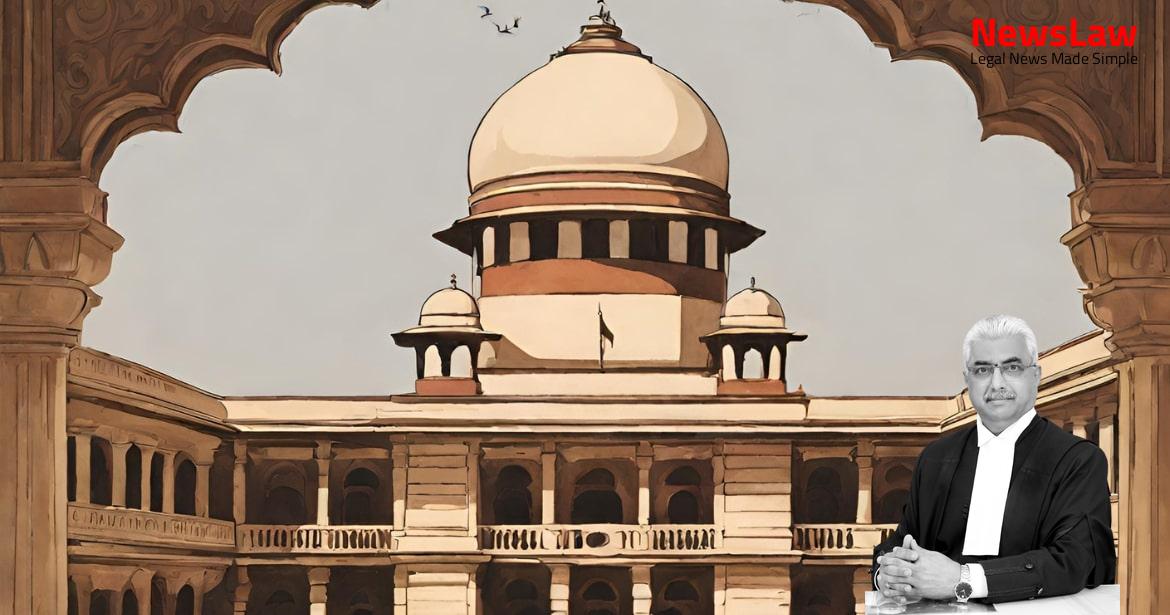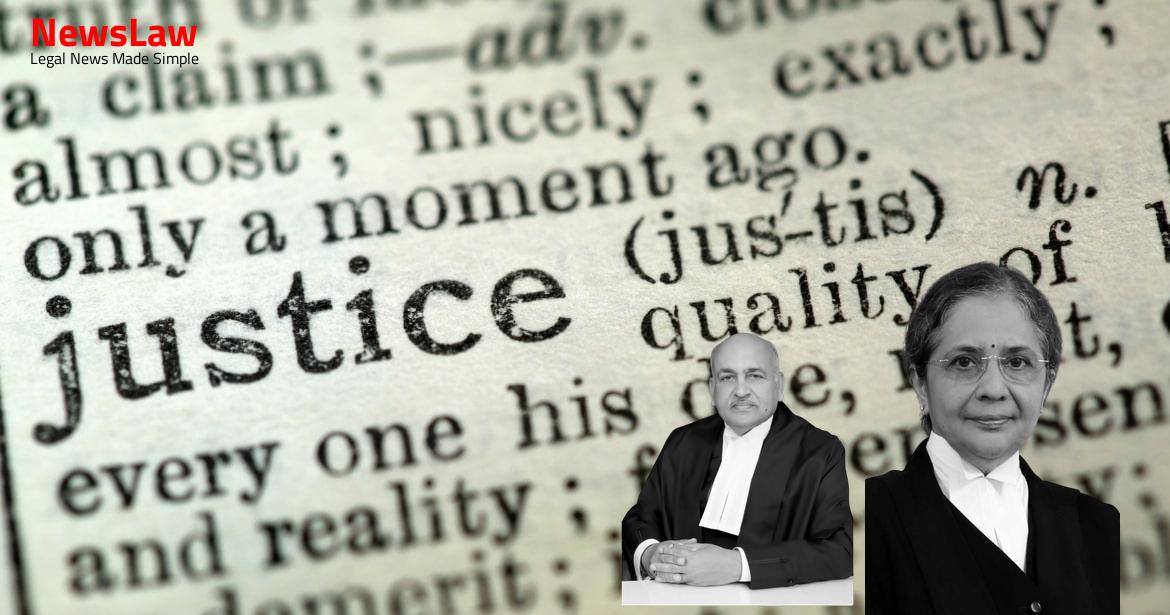In a significant ruling by the Supreme Court of India, the case of Enforcement Directorate v. Amit Walia sheds light on the modification of orders in criminal proceedings. The judgment addresses concerns raised by the Enforcement Directorate and the implications for Amit Walia. Stay tuned to learn more about this crucial legal development.
Facts
- Respondent Amit Walia filed an application seeking modification of an order that barred investigation until final disposal of the cases by the High Courts.
- Enforcement Directorate, New Delhi, sought recall of the order as it was not heard before disposal of the case with adverse directions.
- Various criminal proceedings were initiated against the writ petitioners in different High Courts, including Allahabad, Calcutta, and Delhi.
- Multiple interim orders were passed directing no coercive steps be taken until final disposal of the petitions in different High Courts.
- Writ Petition (Crl.) No 166 of 2023 was filed by Gagan Banga and Indiabulls Housing Finance Limited seeking various reliefs including guidelines to protect financial institutions from criminal proceedings by disgruntled defaulting borrowers.
- The writ petitioners filed three additional applications seeking to implead parties, stay further proceedings, and bring additional facts on record relating to FIRs and ECIRs.
- The writ petition was heard on 04.07.2023 and disposed of with specific directions.
- Various FIRs and ECIRs were mentioned in the writ petition for quashing and requesting appropriate relief.
- Interim order dated 13.07.2023 was passed but set aside by the Court on 13.02.2024.
- Judgment reserved on 22.08.2024 in the case.
- Criminal Miscellaneous Writ Petition No. 14101 of 2023 filed before the Allahabad High Court to quash FIR No. 427 of 2023.
- Direction by the Court that no coercive steps should be taken against the petitioner financial institution and its officers, representatives, and managers until final disposal of the petitions by the High Court.
- Allowed petitioners to seek stay of proceedings, to be considered by the High Court on merits.
- Interim protection limited to the petitioner financial institution and its officers, representatives, and managers only.
- All contentions available in law to the parties were kept open to be raised before the High Courts for decision on their own merits and in accordance with the law.
Analysis
- Rule 6 of Order LV of the Supreme Court Rules, 2013, states that the Court has inherent powers to make necessary orders for the ends of justice or to prevent abuse of the process of the Court.
- Errors were acknowledged due to oversight in not listing I.A. No 122413 of 2023, FIR No 197 of 2023, and ECIR No ECIR/HIU-1/06/2023 in the writ petition challenged before the Court.
- The Court recognized the need to rectify errors in its orders and allowed parties relegated to the High Court to raise and pursue all issues before them.
- The Court clarified that it would usually avoid entertaining miscellaneous applications in disposed cases but could consider them in exceptional circumstances.
- The Enforcement Directorate was impleaded as a party respondent after the final order was passed, and they sought a recall of the order due to lack of prior hearing.
- The Court emphasized that no coercive steps should be taken in connection with FIR No 197 of 2023 till the final disposal of the High Court petition.
- Any abuse of process or essential modifications post-case disposal could be entertained by the Court if necessary for justice.
- Clarifications or modifications in a disposed case could be permitted depending on the individual facts of the case.
- The principle of not passing adverse orders without hearing the party was highlighted.
- The stay of proceedings granted by the Court in the writ petition related to the first three FIRs was to continue until the High Court’s disposal of the petitions.
- The power of recall is distinguished from the power of altering or reviewing a judgment.
- The legal system acknowledges the fallibility of Judges, as mentioned in V.K. Jain v. High Court of Delhi through Registrar General and others.
- Certain applications for clarification, modification, or recall are actually seeking a review and a hearing to avoid listing in chambers.
- Directions in the previous order may be misconstrued by High Courts as observations by the Supreme Court on the merits of the matter.
- The previous order needs to be modified for various reasons.
- The deviation in the previous order was unintentional and due to oversight.
Also Read: Case Summary: Disputed Share Acquisition Involving Dr. Suresh Anne
Decision
- The order pertaining to ECIR No. ECIR/HIU-1/06/2023 is recalled.
- Stay granted on all proceedings related to the impugned FIRs in three different States by interim order dated 28.04.2023.
- High Court of Allahabad can consider the challenge in Criminal Miscellaneous Writ Petition No. 10893 of 2023 on merit and as per the law.
- High Courts where proceedings are initiated against the FIRs can entertain applications for interim relief independently and decide on merits, uninfluenced by previous observations.
- Miscellaneous applications and interlocutory applications are disposed of accordingly.
- A corrigendum to the order dated 04.07.2023 is to be attached, stating the modifications made.
- Modification in the order dated 04.07.2023 by changing the phrase ’till final disposal of the respective petitions’ to ’till the filing of the respective petitions’.
Also Read: Landmark Judgment by Supreme Court on Toll Collection Dispute
Case Title: GAGAN BANGA Vs. THE STATE OF WEST BENGAL (2024 INSC 722)
Case Number: MA-001861 – 2023



